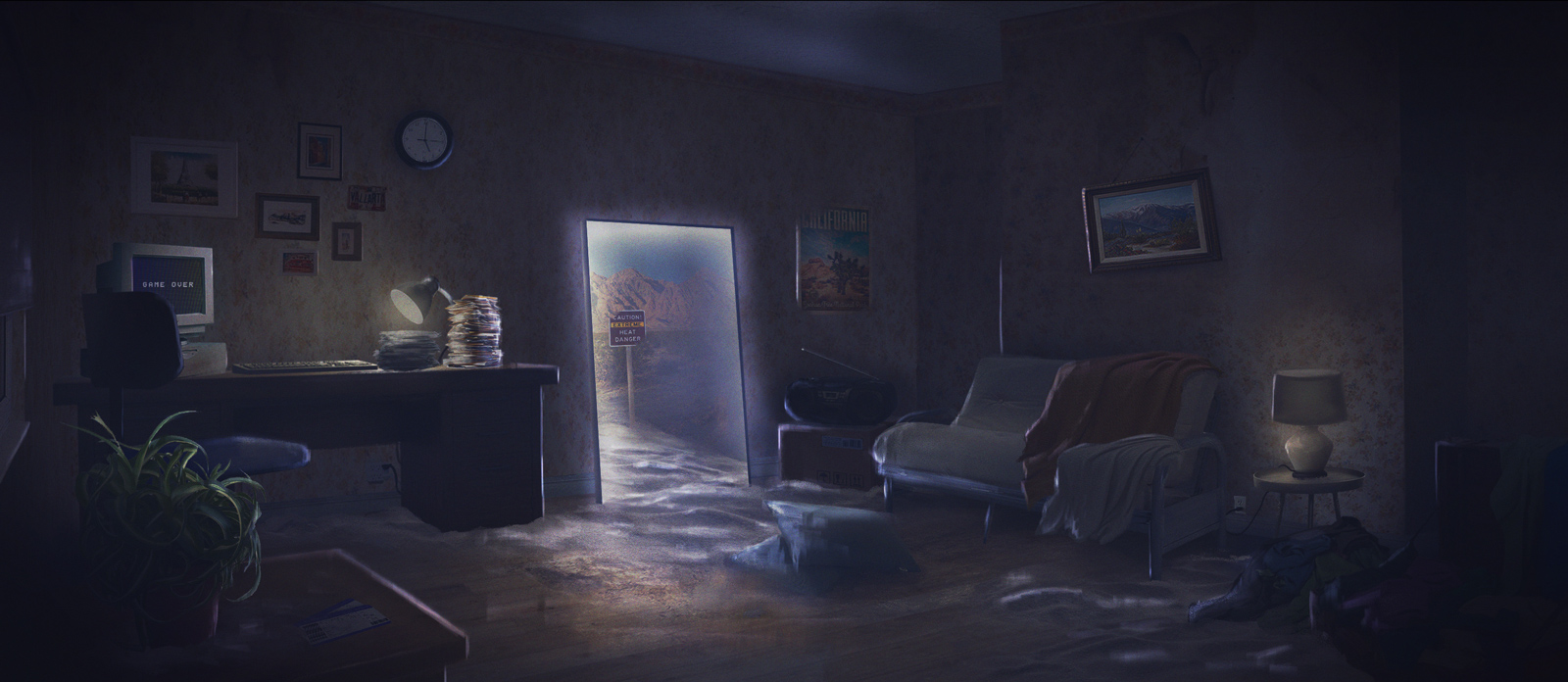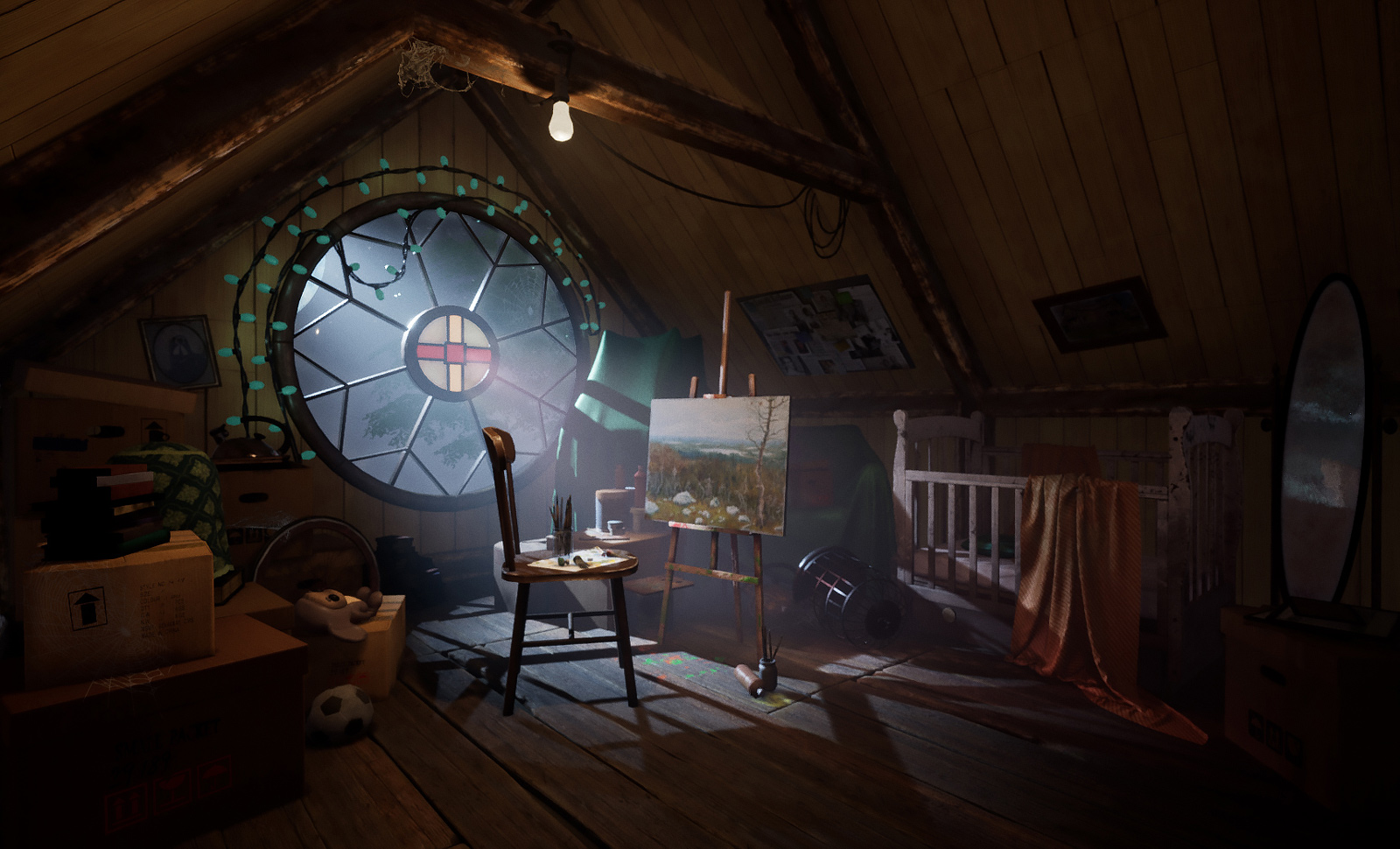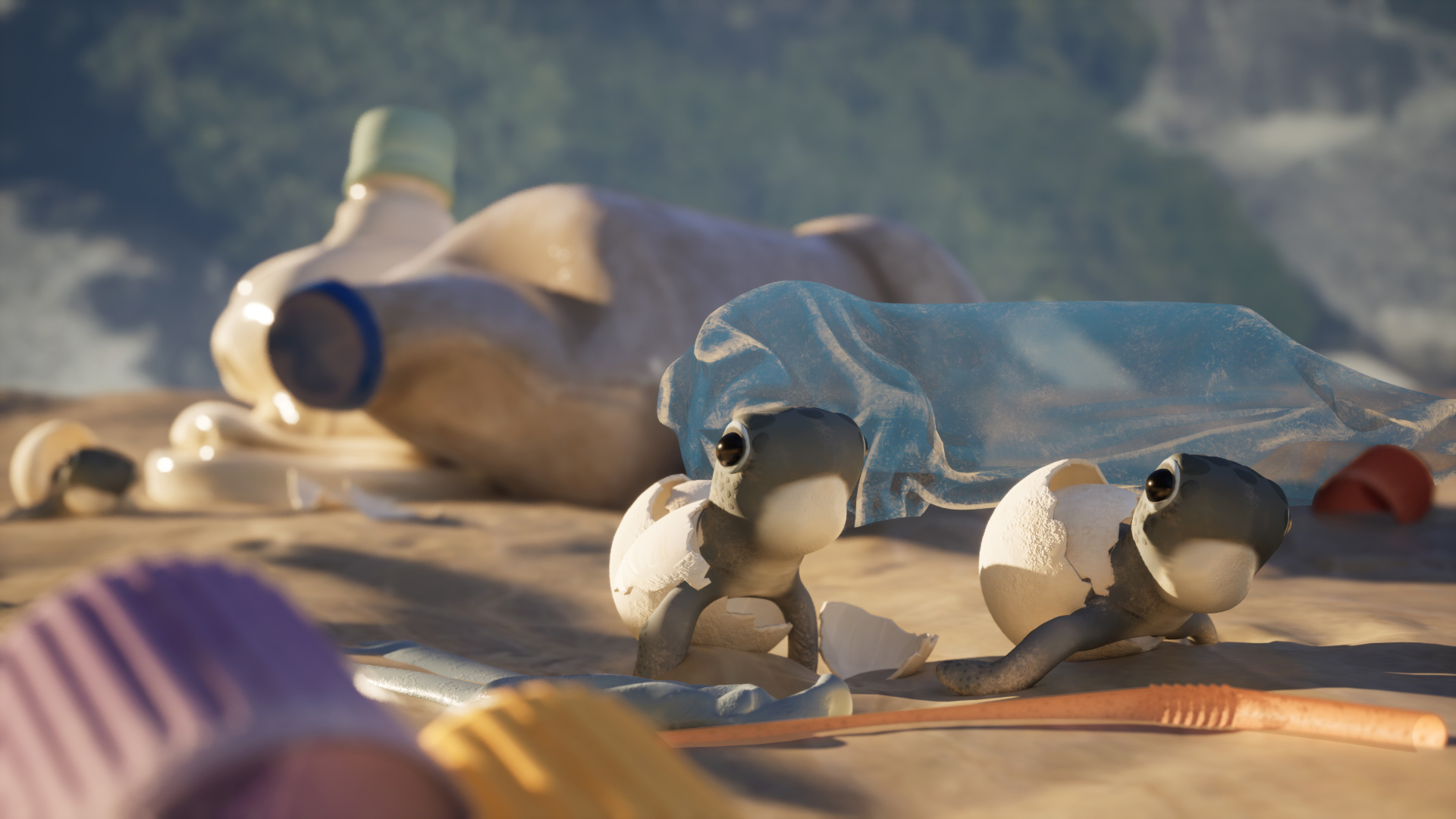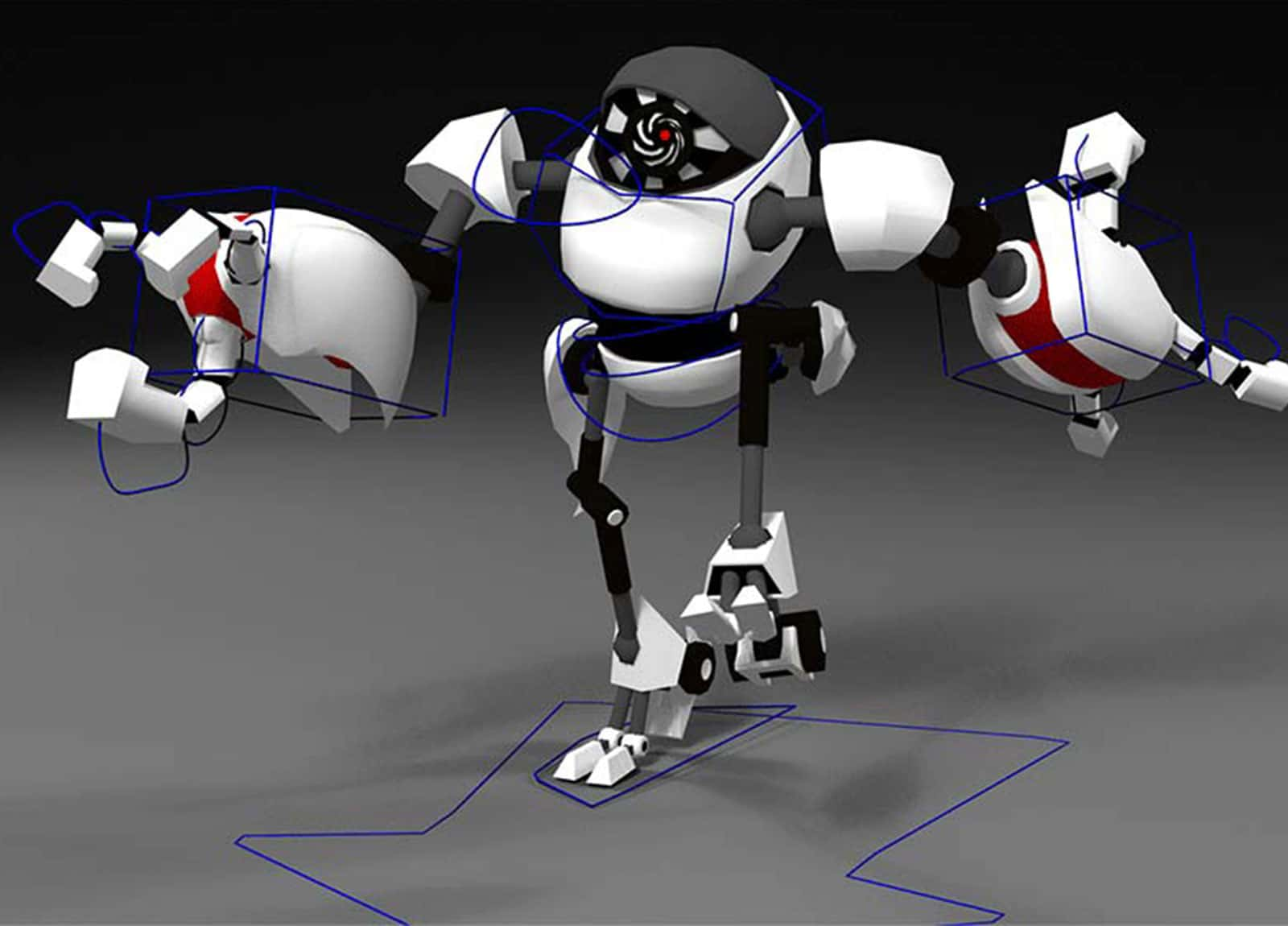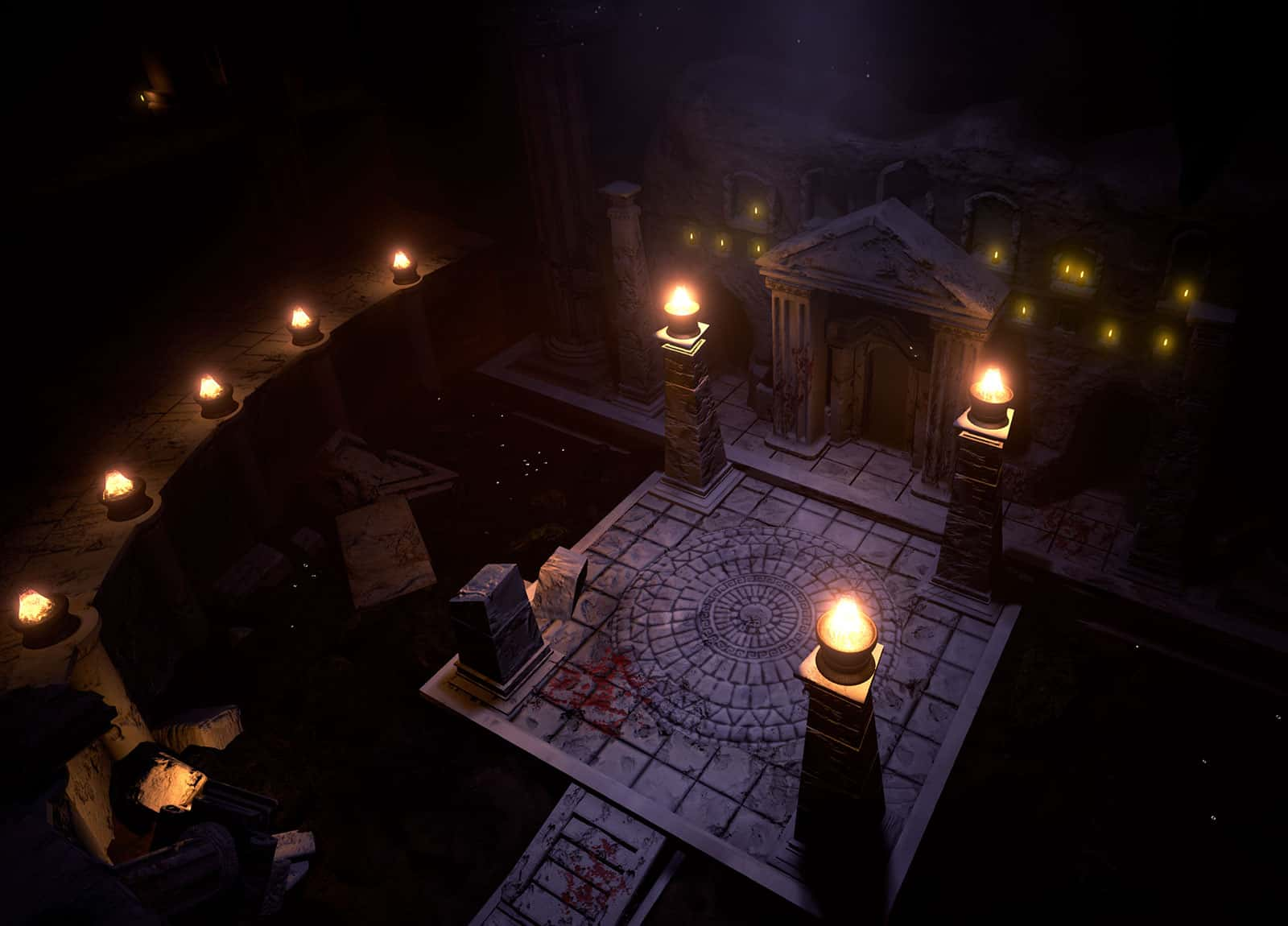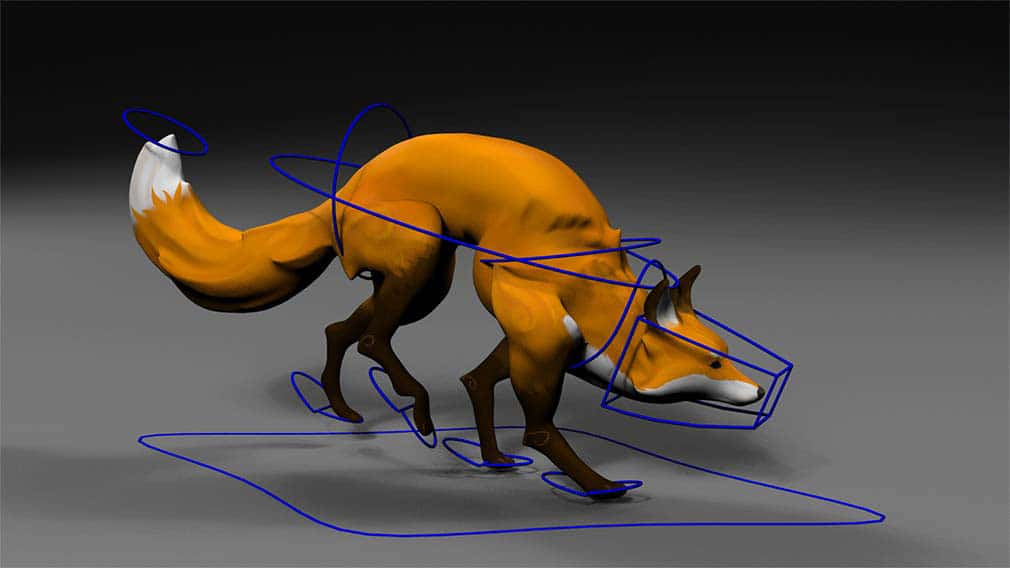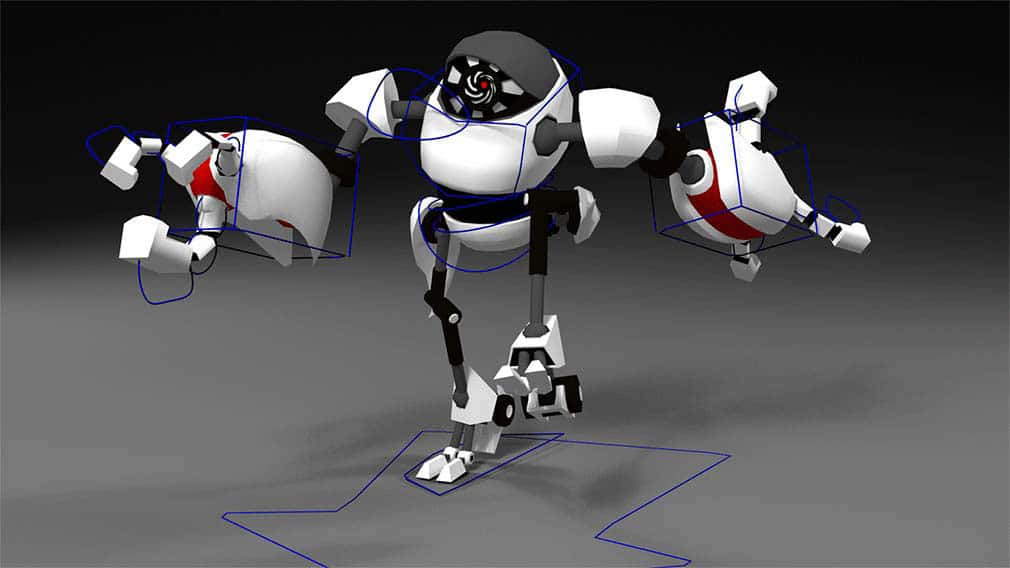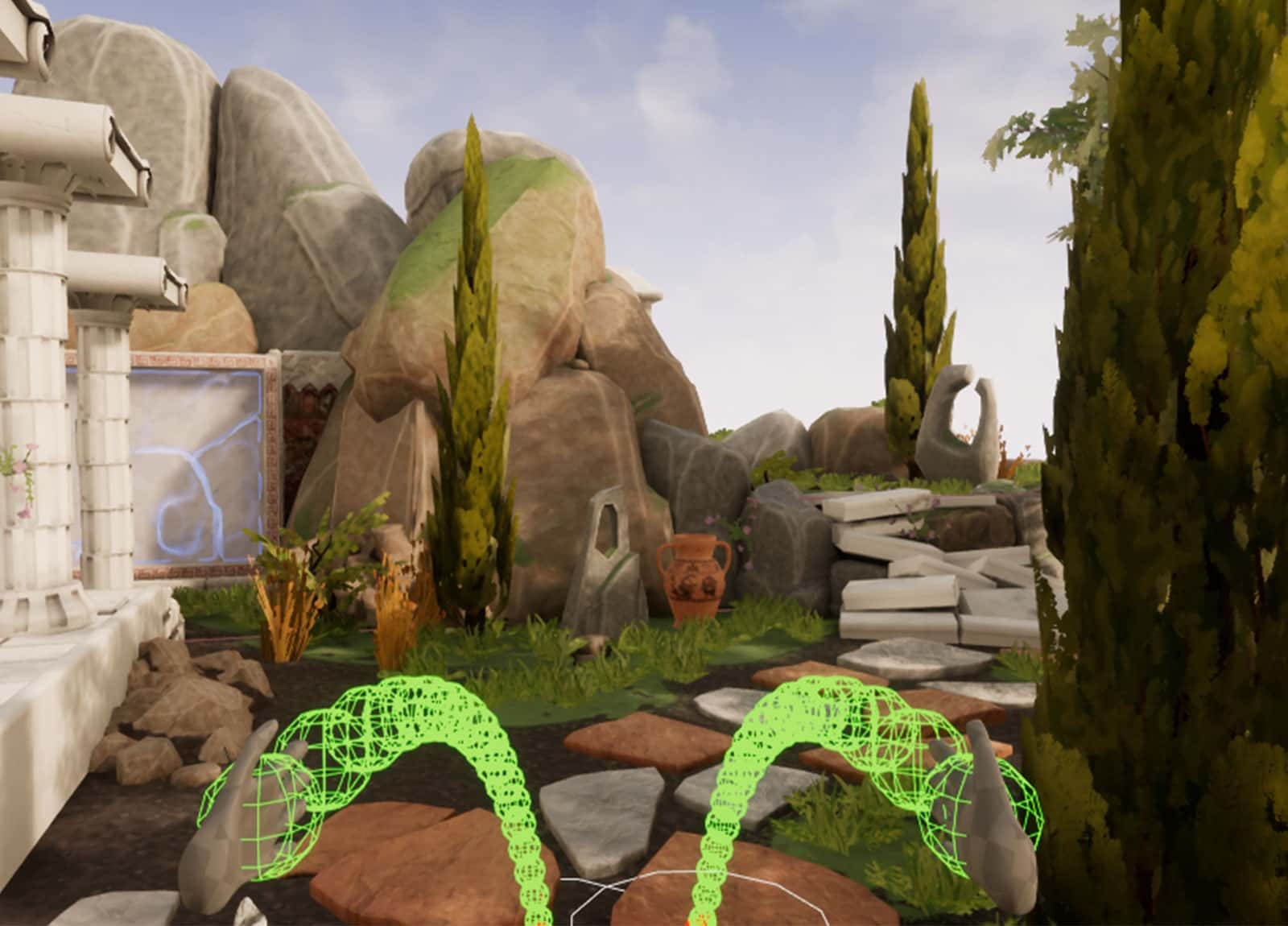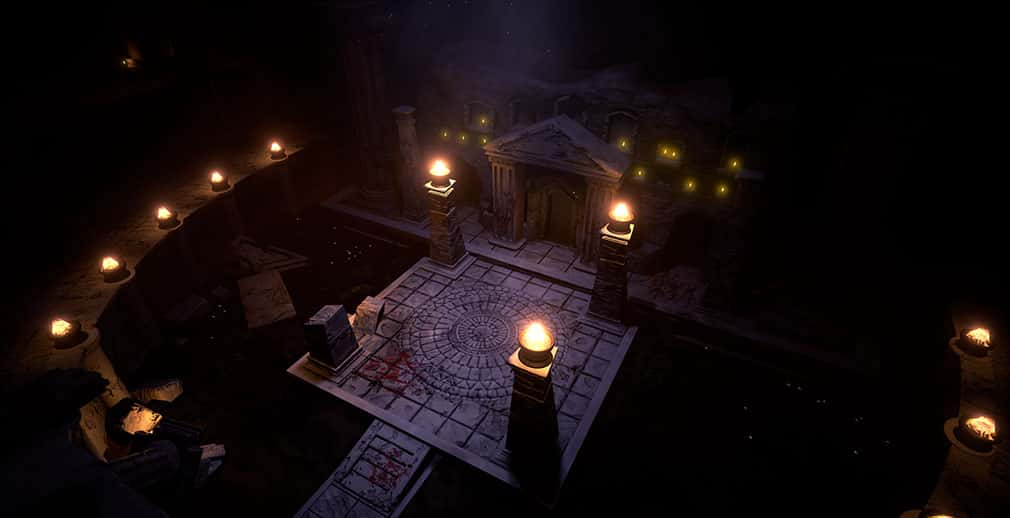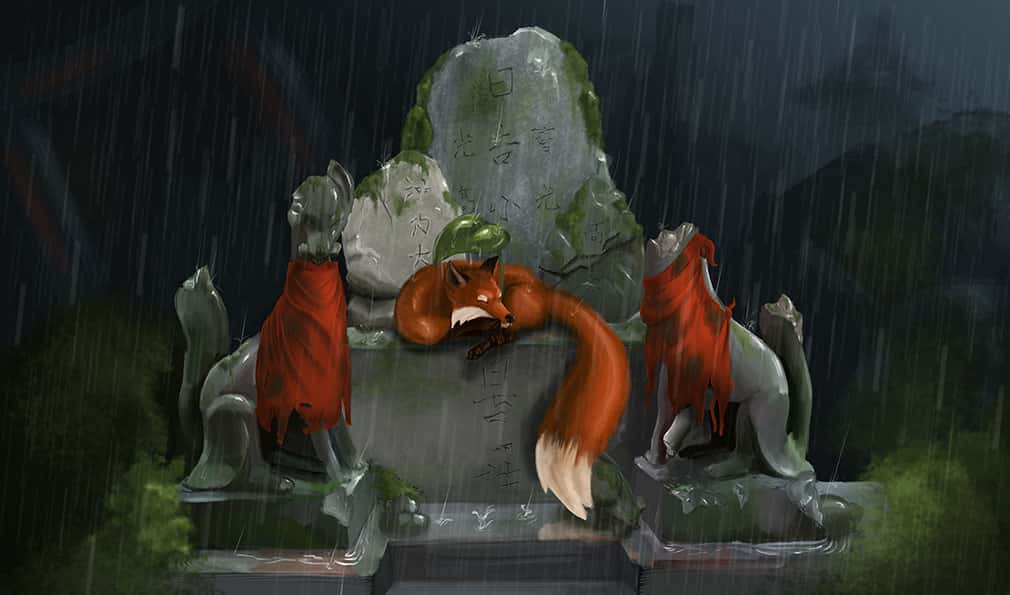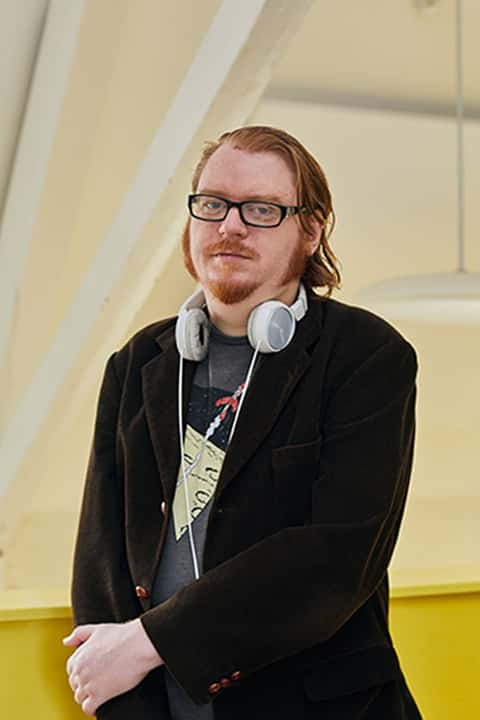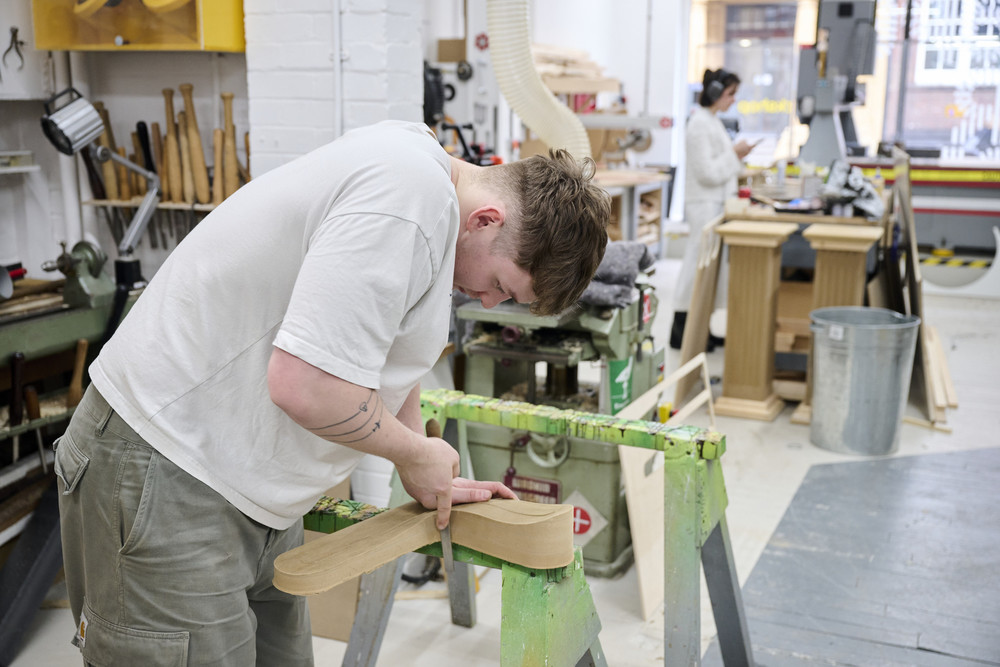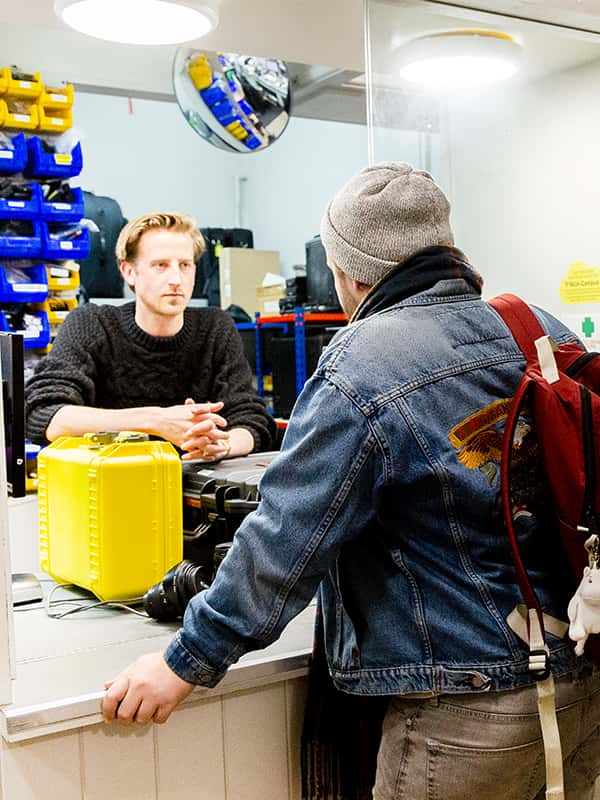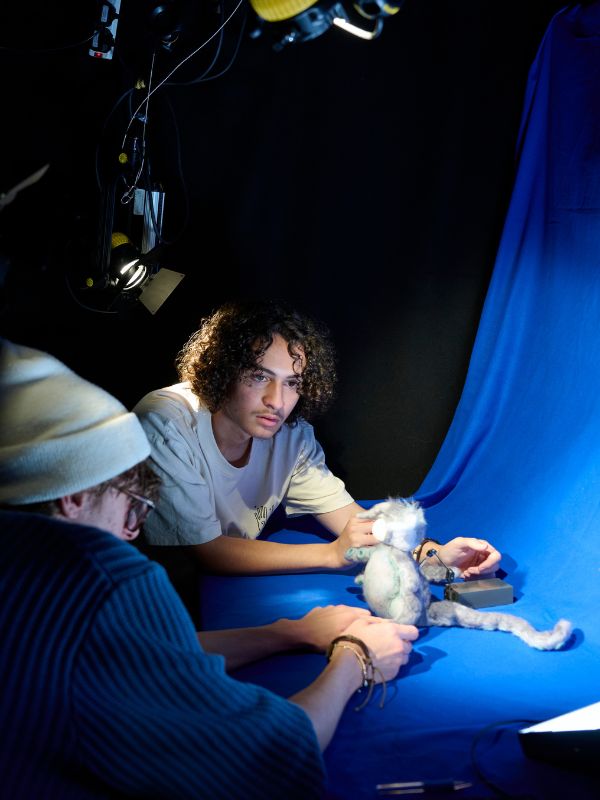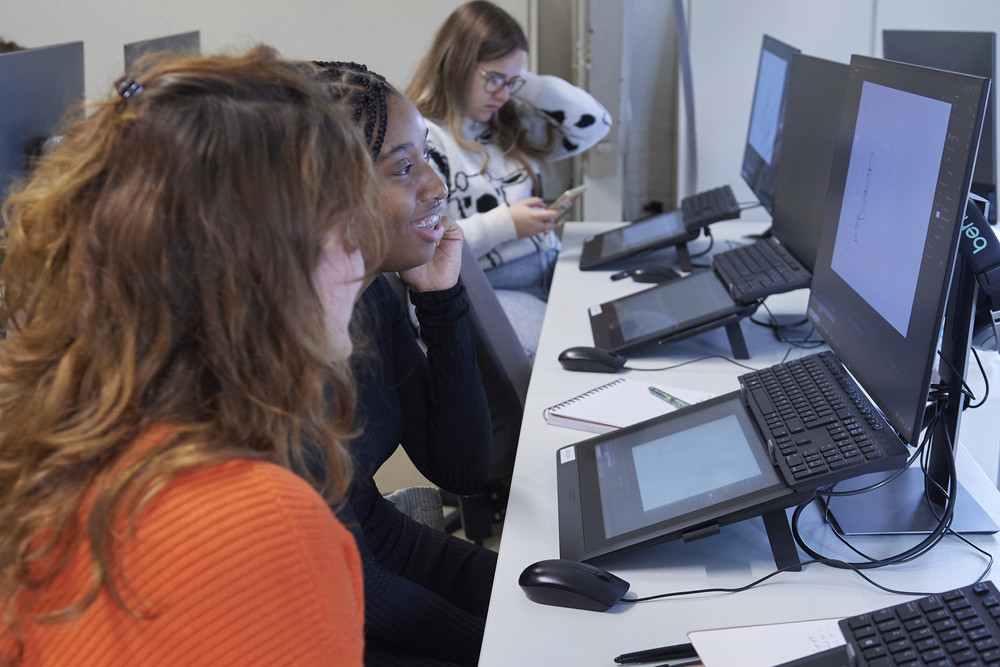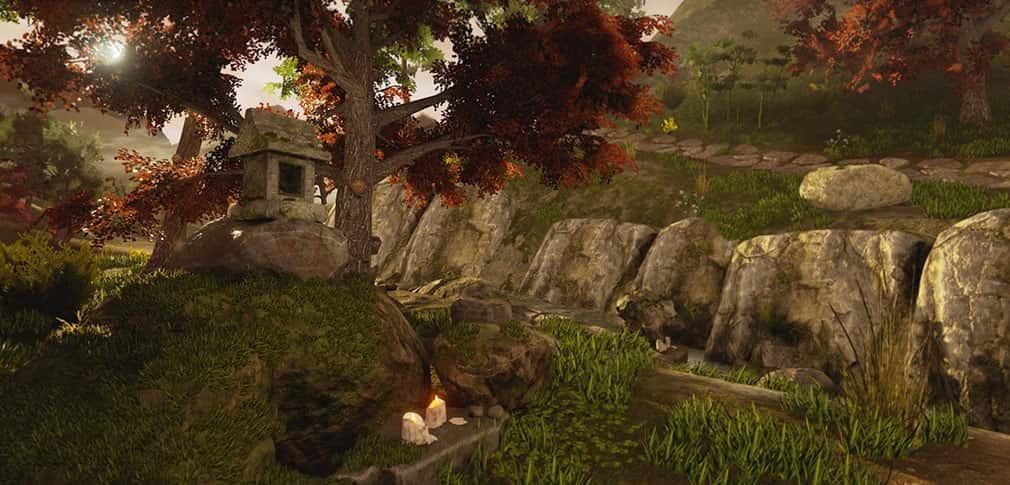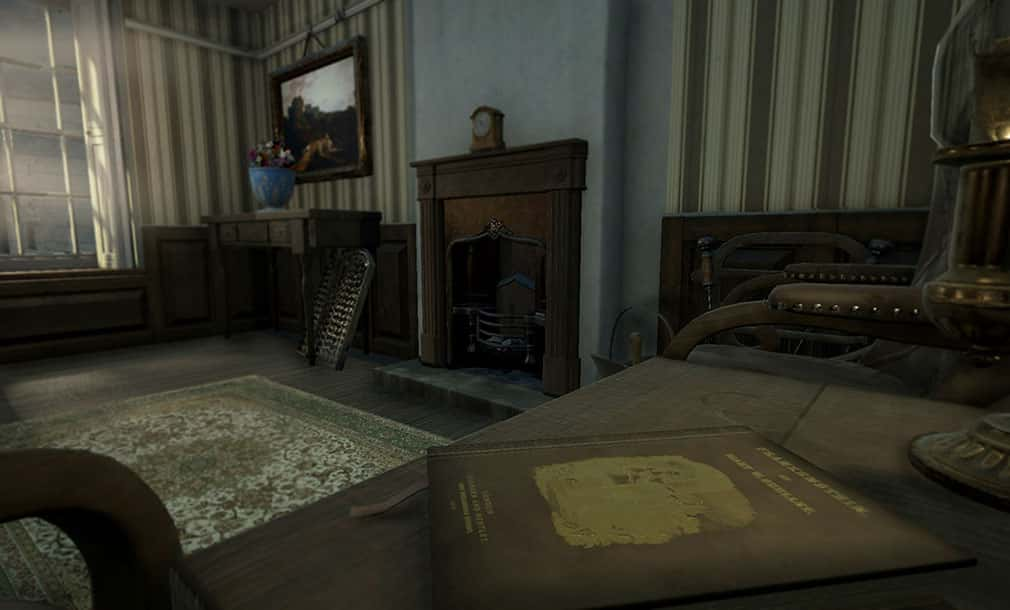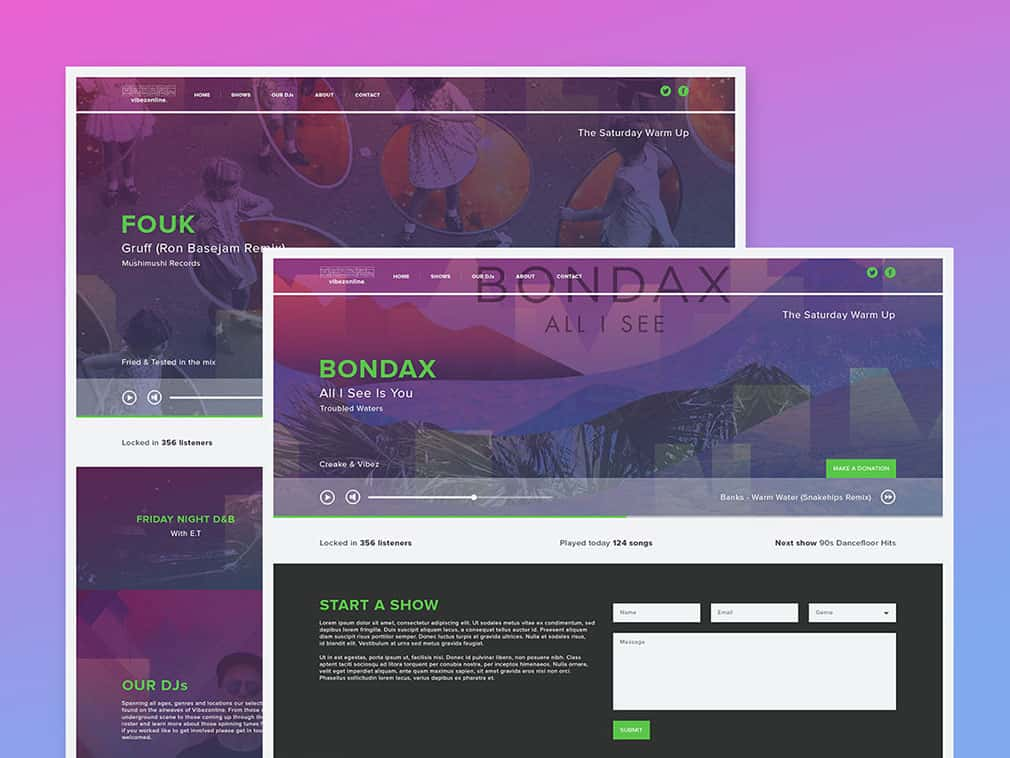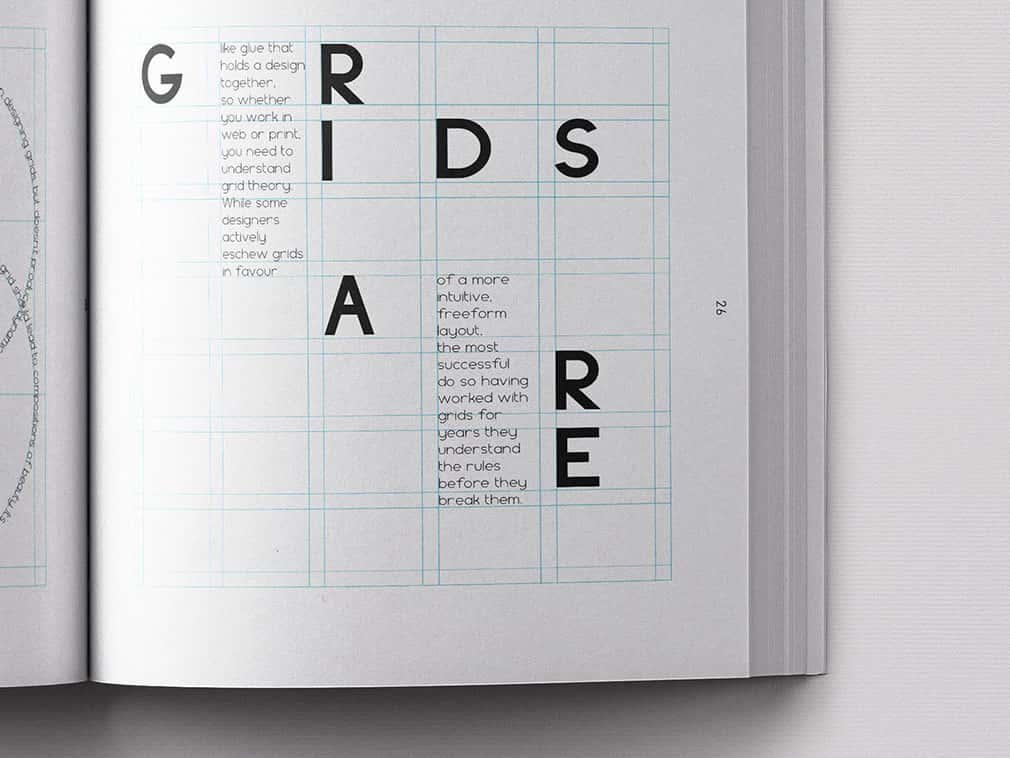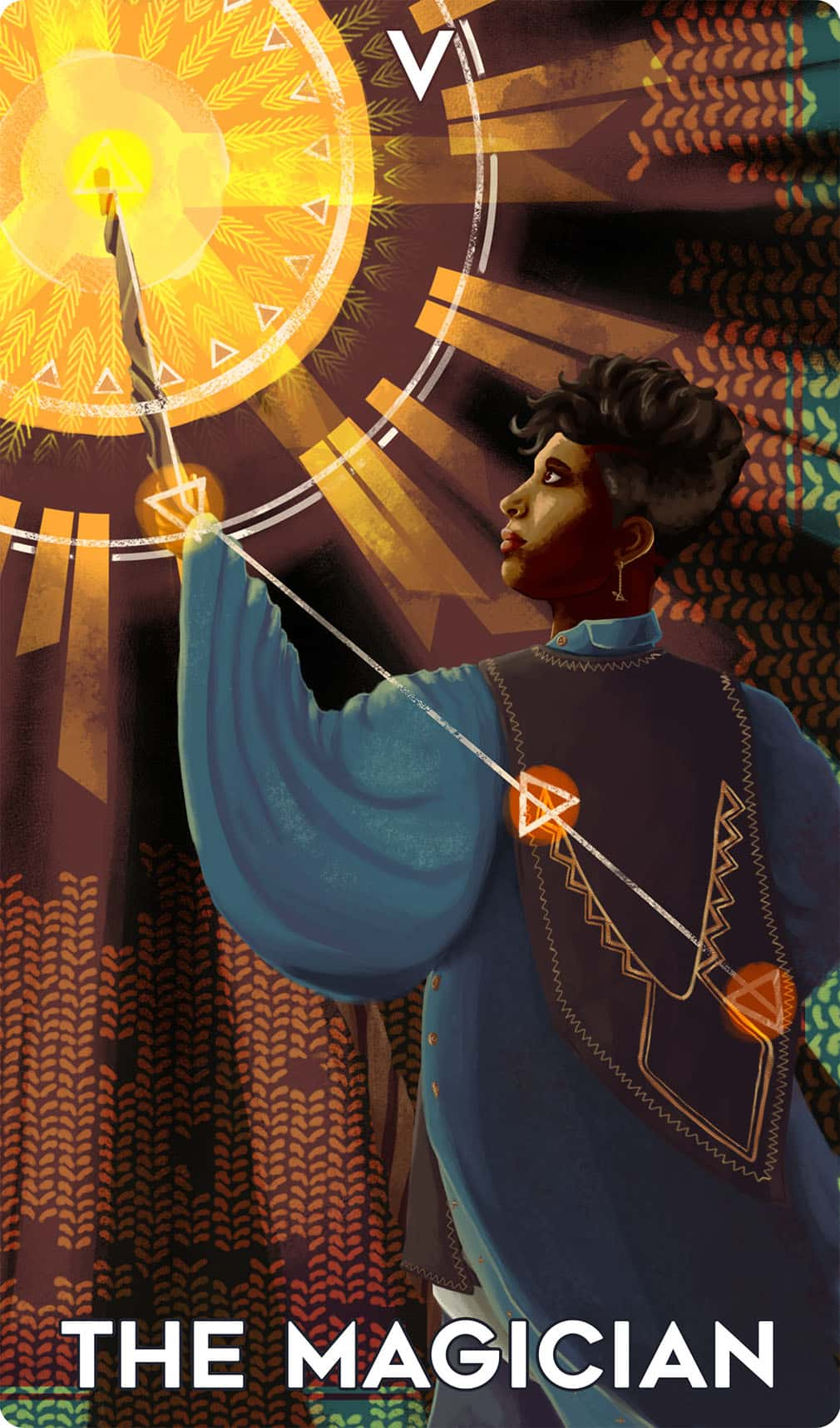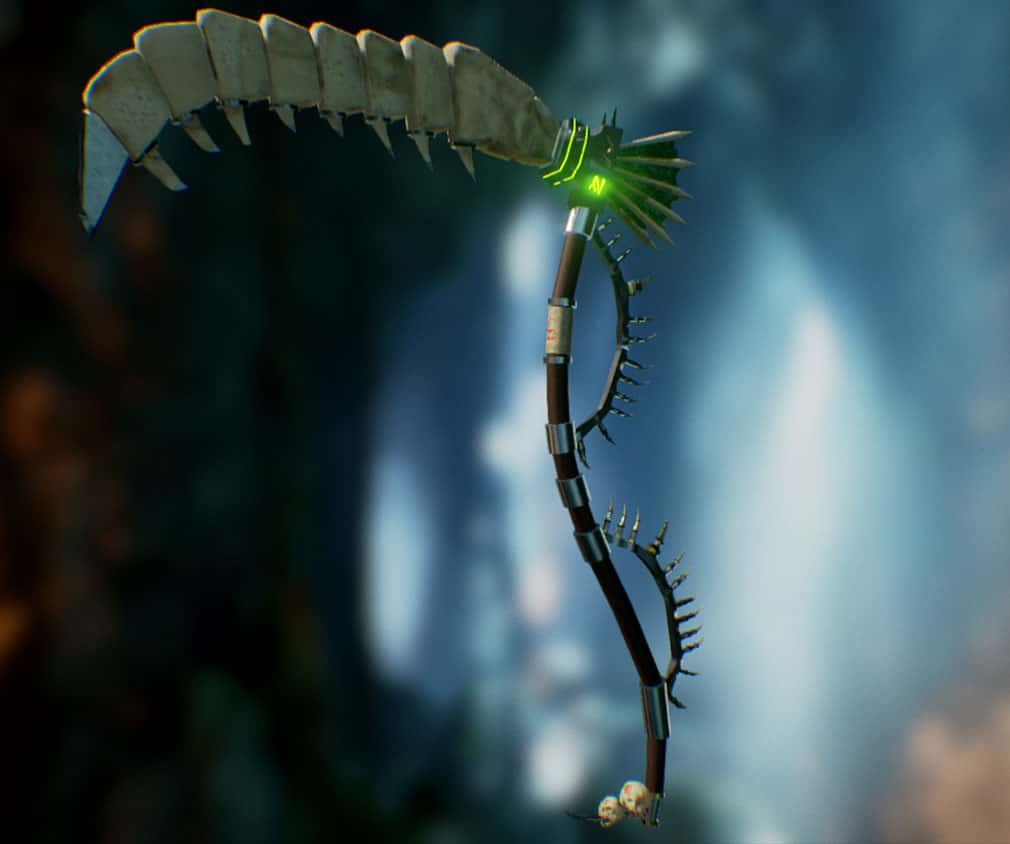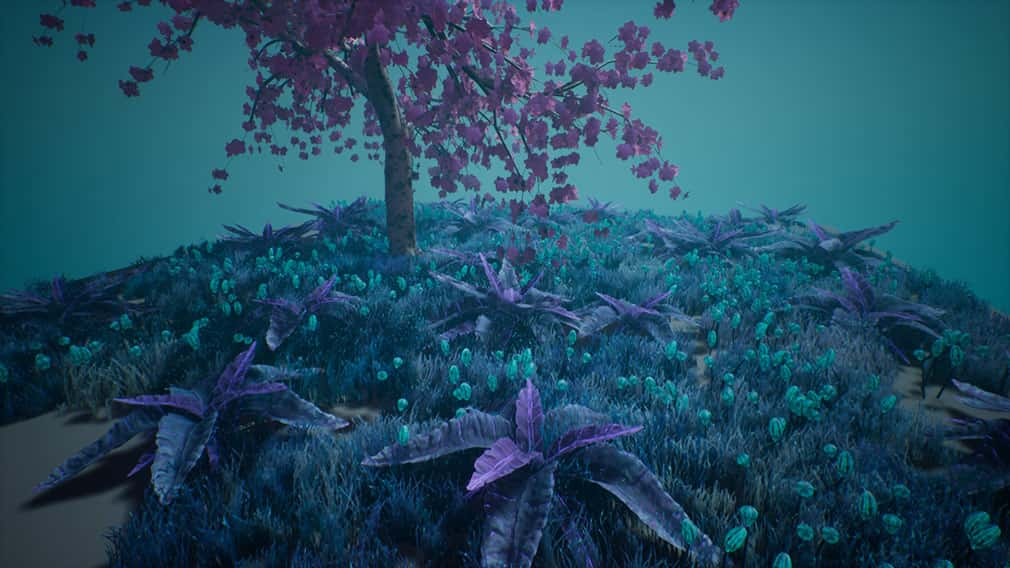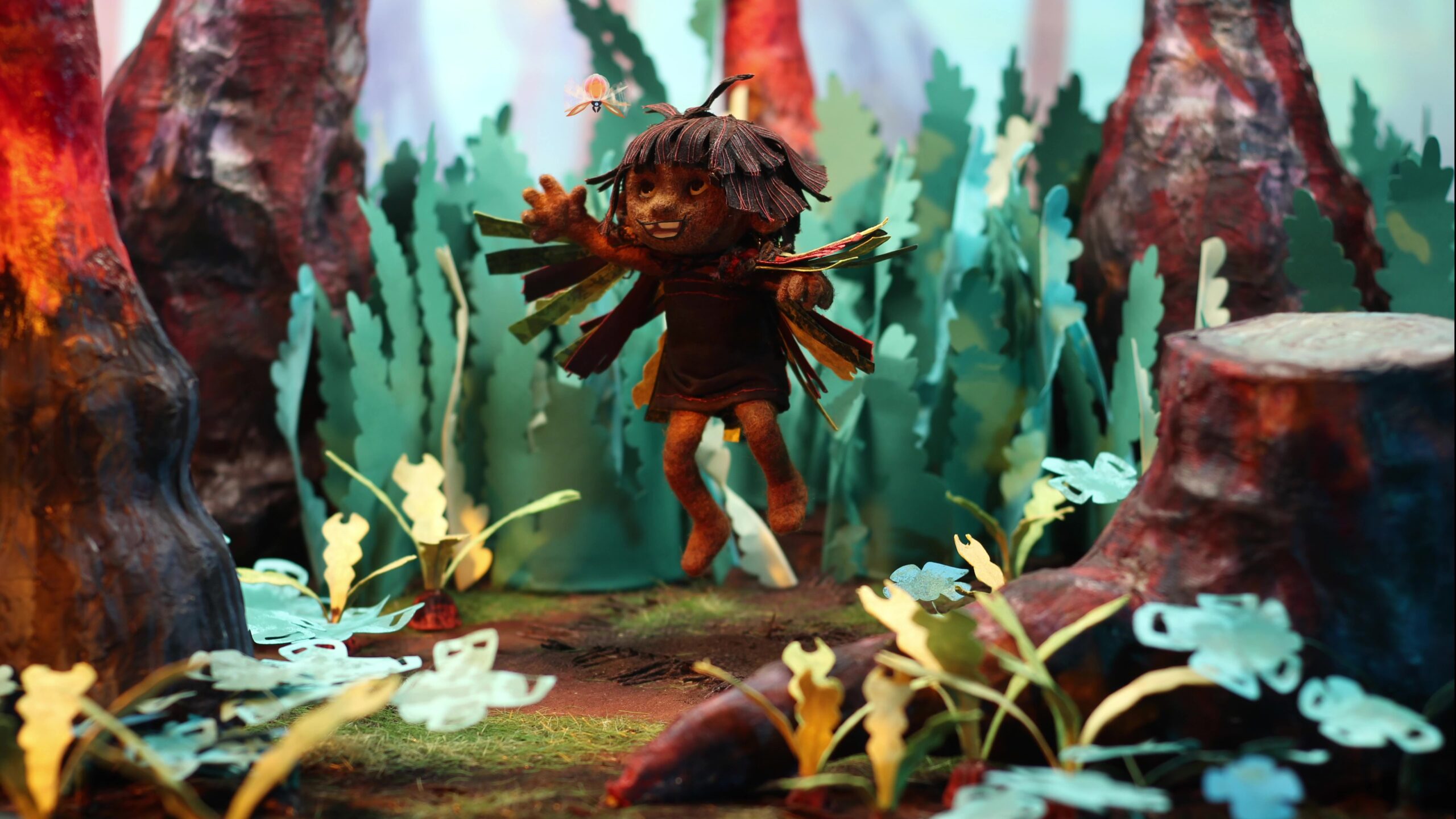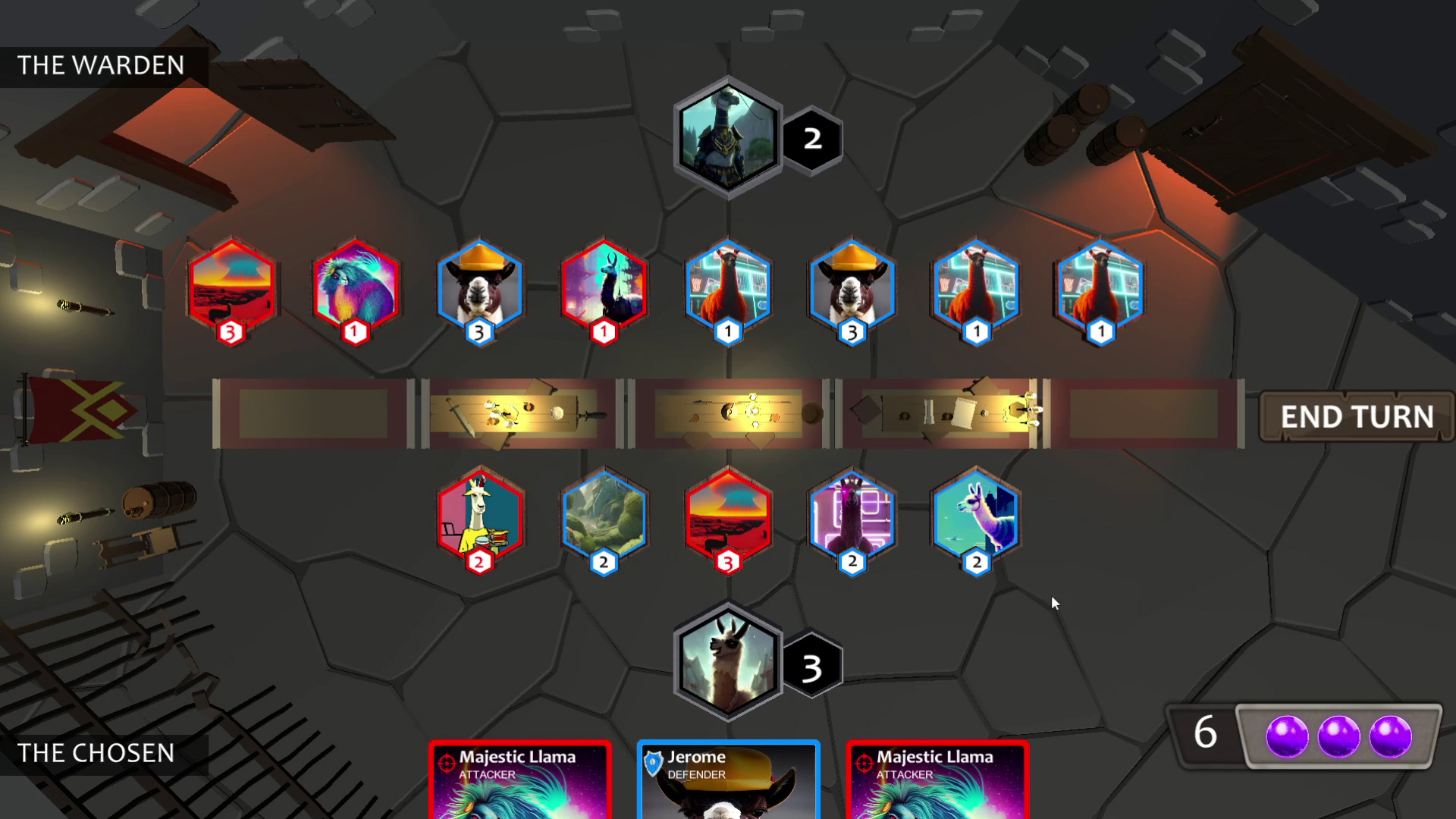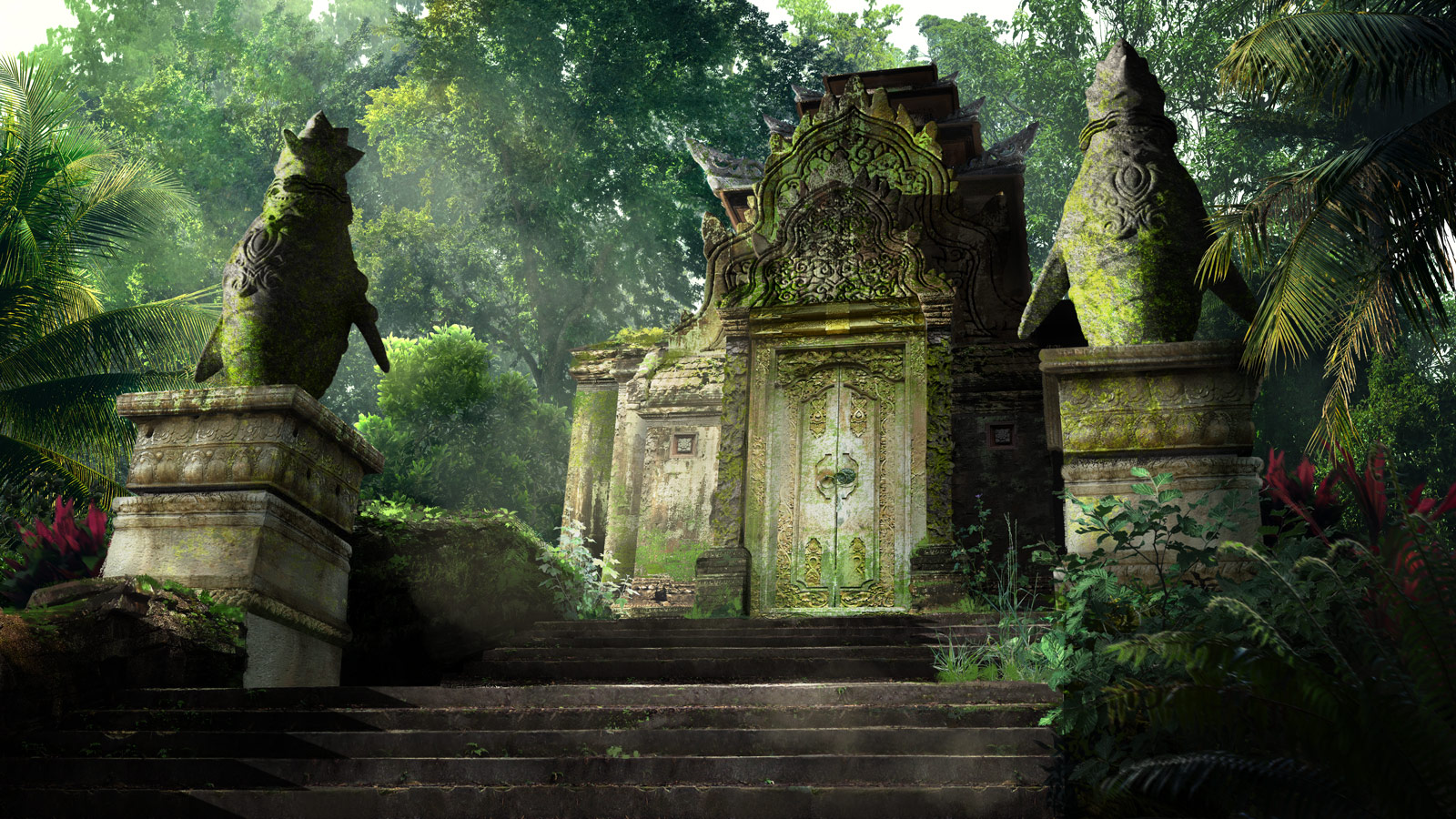
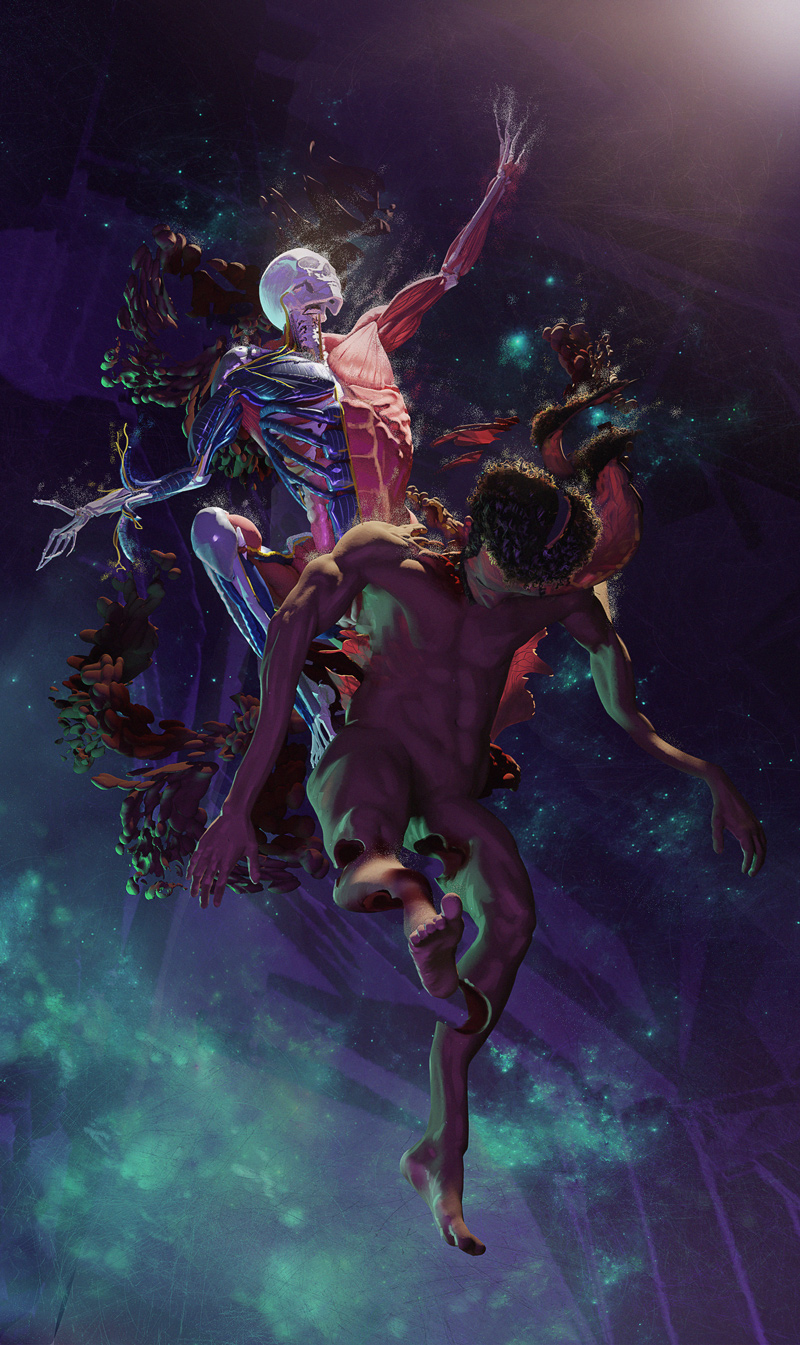
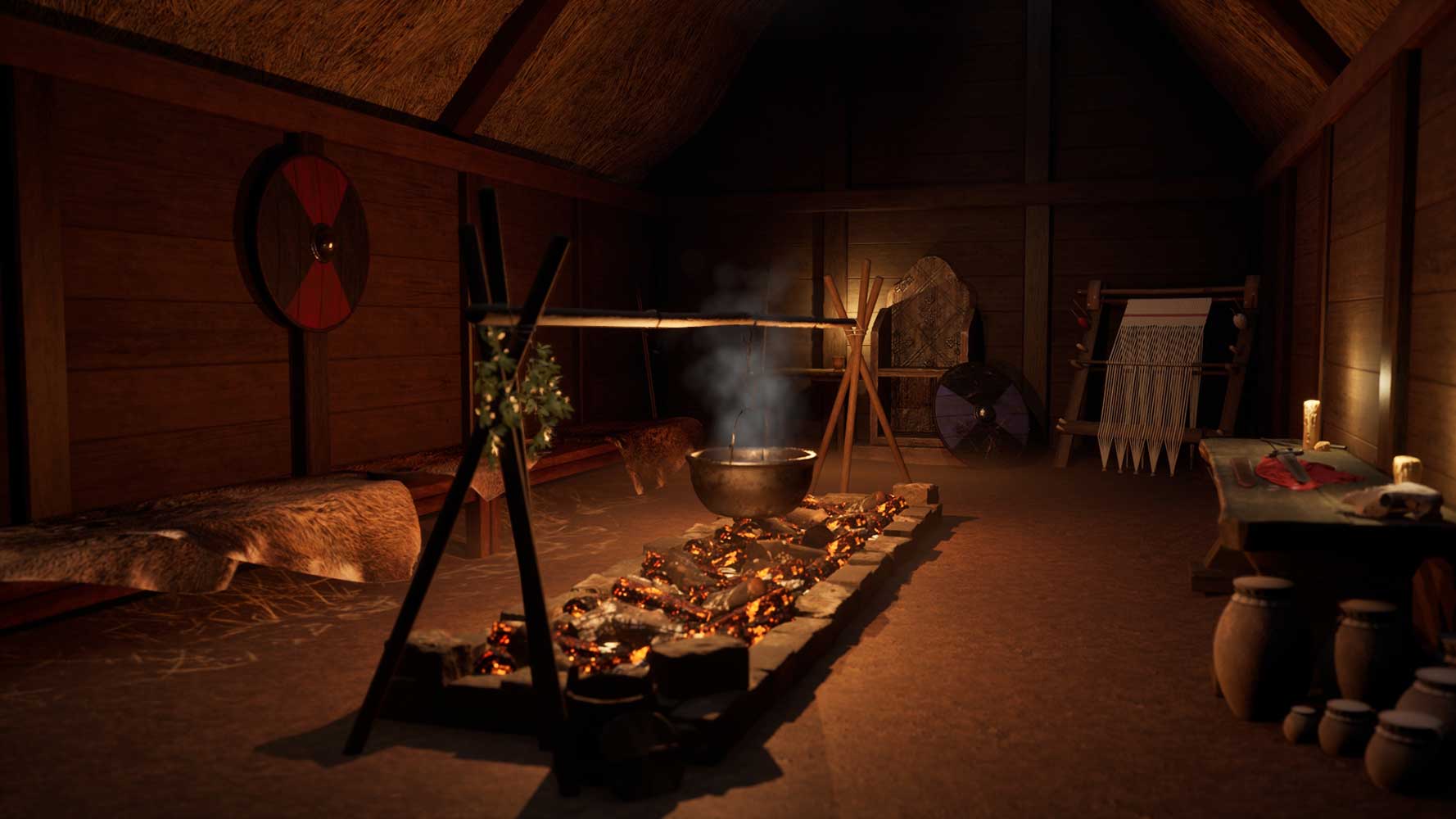
Games MA
Build on your existing skill sets to further develop your creative voice, within a supportive peer learning environment.
-
Course Duration
Full-time 1 year, part-time 2 years
-
Annual Fees
- Home (full-time) £10,400 or (part-time, over 2 years) £6,500 per year
- Overseas (full-time) £18,860
-
Course Start
September 2026
- How to Apply Request a prospectus (opens in a new window)
The MA Games course at Norwich University of the Arts seeks to nurture your aspirations of working in the games and wider creative industries, by supporting and developing your existing creative skillset. Our vibrant, creative community offers a stimulating environment for understanding games as a cross-disciplinary endeavour, emphasising creativity over mere industry production.
Game design is a dynamic and iterative process and you will be encouraged to adopt an attitude of curiosity and experimentation with ideas and processes. The aim is to explore how you can use the cultural medium of games to explore an issue or topic that you are passionate about.
You will be challenged to take creative risks, develop your aesthetic voice, and conceptually push the boundaries of game design, supported by theoretical, cultural, and historical research informing your practice-based approach.
You will have access to cutting-edge technology and industry-leading software in our labs, as well as the expert staff across our TIGA-award-winning games department, who specialise in 3D asset development, 2D concept art, game design and Unreal game development.
Why study with us
-
Project-Based Skills
The course emphasises hands-on, project-based learning. You’ll engage with real-world projects and live briefs, enabling you to apply your skills in practical settings and preparing you for the complexities of the games industry.
-
Experimental and Challenging Approach
The course fosters an experimental mindset, encouraging you to tackle complex issues such as sustainability, new technologies, inclusivity, and ethics in game design.
-
Access to Professional-Level Resources
You’ll have access to our Media Labs, offering cutting-edge technology for game development. The 2D/3D Animation Studio provides advanced software and hardware for animation projects, while the Media Resource Centre offers a comprehensive library of digital and physical resources.
-
Interdisciplinary Collaboration
The course offers an interdisciplinary learning environment, reflecting industry practices. This integration of diverse concepts and technologies enhances your educational experience, preparing you for a dynamic and versatile career in the creative sectors.
-
Expertise and Industry Recognition
Graduates of this course include three BAFTA-winning games designers, the V&A’s first Games Designer in Residence, six teams of Dare to Be Digital finalists, and employees at leading companies like Sony Interactive Entertainment Europe, Foundry 42, Rebellion, Crytek, Frontier Developments, Splash Damage, Ubisoft, and Rockstar Games. A recent graduate has gone on to found his own indie studio called Kalp in Bangalore, India.
-
Preparation for Advanced Professional Roles
This course combines theoretical, cultural, and historical research with cutting-edge technology, accelerating your readiness to meet the demands of the rapidly evolving games industry, and preparing you for advanced roles and complex professional challenges.
Course Details
This programme is a one-year course including 30 weeks of direct teaching time and a 15-week final project. You will need to complete three units and one 60-credit Major Project (180 credits in total). All units on the course are compulsory and must be passed in order to complete the award. If you study part-time your modules will be split across two years.
For full course details including aims and assessment criteria, download the course specification.
Core Practice and Context (60 Credits)
This unit launches your Masters’ study experience at Norwich by exploring the cutting-edge practices and emerging research in the games discipline, enhancing both critical understanding and creative skills. Focused on key game studies theory and narrative design, the unit emphasises understanding games as cultural and media artefacts. You will develop research methodologies to further knowledge, assimilate findings, and develop creative works informed by context, theme, intent, and meaning. Consideration will be given to the desired outcomes in relation to aspirations and career goals, including addressing global challenges or the United Nations’ 17 goals for Sustainable Development. Through experimentation, critical reflection, and practical application, you will refine your conceptual and contextual frameworks, preparing you to be critically engaged and reflective game designer.
Collaborative Challenge (30 credits)
This unit is designed to address emerging and evolving issues in the games industry, including sustainability, new technologies, and inclusivity. It promotes a creative, cross-disciplinary approach, encouraging students to experiment with various game design methodologies that challenge and expand their current practices. In a supportive environment, students collaborate on projects that may involve real-world scenarios, aligning with the UN Sustainable Development Goals or live briefs from external clients. The focus is on teamwork, critical thinking, and developing a unique design voice, with guidance from industry-experienced tutors. The unit culminates in a group submission and an individual reflective summary, emphasizing independent study, practical skills development, and engagement with the dynamic landscape of game design and development.
Project Design and Development (30 credits)
This unit equips students with the skills necessary to design and develop creative or research projects within the games industry. It provides a diverse range of tools and methodologies, preparing students for major projects, as well as further academic or industry research. The unit introduces a wide array of research methods from the arts, humanities, and social sciences, tailored to suit the unique needs of game design projects. Through a blend of independent study and expert-led tutorials, students will gain a thorough understanding of project planning, ethical considerations, and the use of digital and analogue tools. By the end of the unit, students will produce a contextual review, a detailed project plan, and an ethics review, establishing a solid foundation for their major project. This preparation helps students cultivate a distinct creative voice, equipping them for professional success in the games industry.
Major Project (60 Credits)
This unit forms the culmination of your Master’s study in which you will design, develop, and execute a major project. The project offers a sustained period of self-directed study, allowing you to deeply explore your creativity and articulate your vision to diverse audiences. You may also pursue collaborative projects with supervisor approval. The unit encourages you to create and evaluate a professional-quality body of work, demonstrating advanced understanding and contextual placement within socio-cultural frameworks. You’ll develop skills in selecting research methods and innovative problem-solving, pushing the boundaries of your specialism and offering new insights. Regular consultations with your supervisor will help refine your project’s format and ensure its relevance to both local and global contexts, showcasing your potential for professional and research applications beyond your studies.
Download course specifications
Learning and teaching
The course is delivered through a variety of engaging learning and teaching methods.
-
Lectures
-
Seminars
-
Tutorials
-
Technical labs
-
Independent and group work
Assessment
Our assessment methods will vary based on the unit you choose and provide a comprehensive measure of your learning and progress. These methods may include:
- Critically reflective essay
- Course work
- Presentations
- Learning journal
- Reflective evaluation
- Body of creative work
- Reflective research report
- Team project evaluation
- Major project
- Supporting documentation
Some of the people you’ll be working with
Our Facilities
Look around our city-centre campus, and you will find studios, media labs, and creative spaces in 13 buildings that sit among the cafés, bars, independent galleries and shops of Norwich’s cultural quarter.
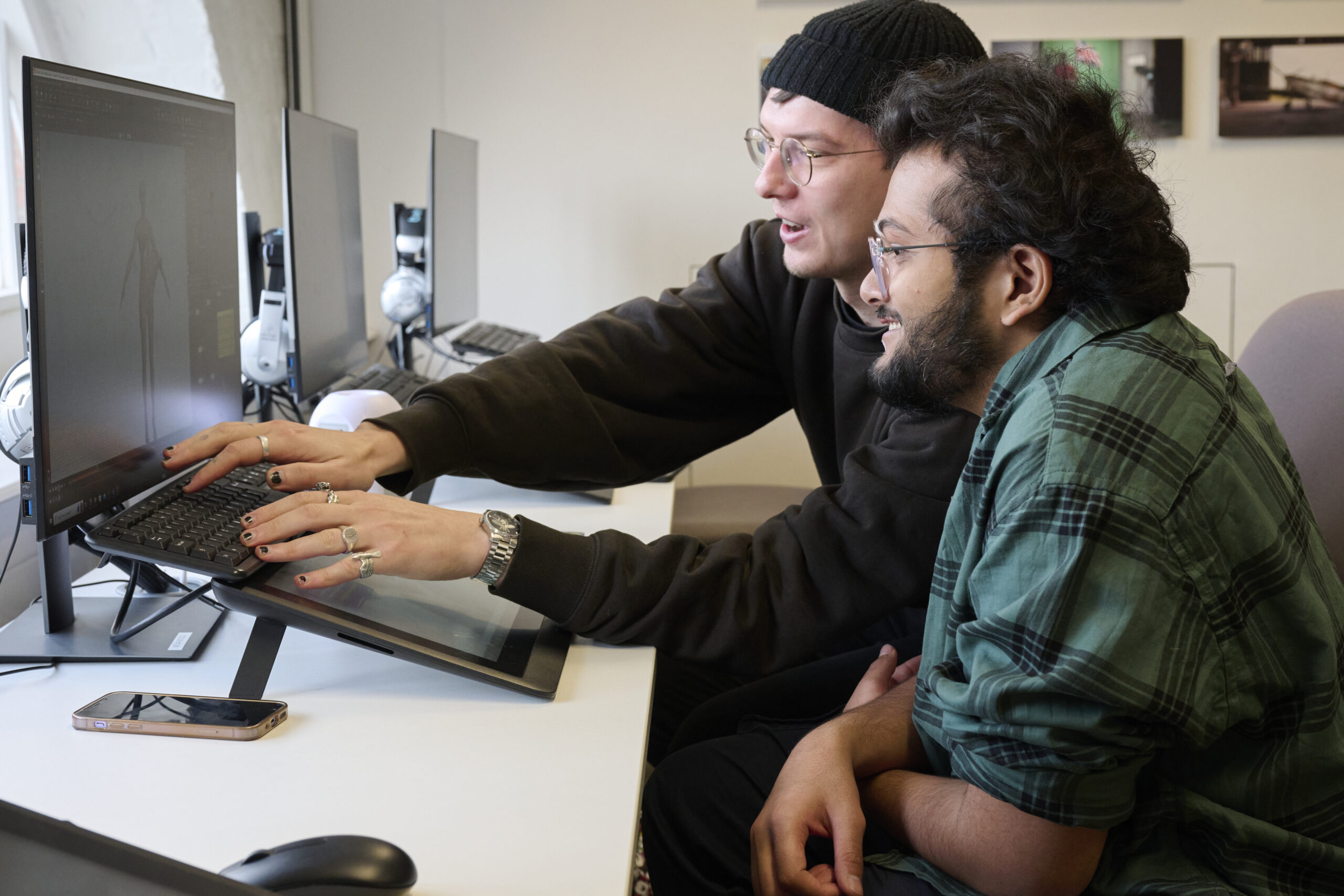
Typical career paths
- Games Art
- Games Design
- Concept Art
- Creative Direction
- External Production
- Project Management
- Indie Games Development
- Teaching/Lecturing
- Research/PhD Study
- Illustration
The UK’s creative sector is thriving, contributing £111.7 billion annually to the economy and offering over 2 million jobs.
Department for Digital Culture Media and Sport (DCMS)
Entry Requirements
Entrants should normally have achieved a BA (Hons) / BSc Degree of 2:1 or above (or its equivalent), in a subject related to your proposed course of study.
Applicants who hold a Degree from another discipline may also be considered for entry, subject to the submission of a satisfactory portfolio of art, design or media-related work in support of their application.
Those with industry experience or relevant skills from non-traditional backgrounds are encouraged to apply, including individuals currently employed. If you’re unsure about your eligibility, please contact us for guidance before applying.
English language requirements (International/EU)
If English is not your first language, IELTS 6.5 (or equivalent) is required, with a minimum of 5.5 in reading, writing, listening, and speaking. we also accept other English language qualifications.
International Qualifications
We accept a wide range of qualifications from all over the world.
For information on entry requirements from your country, see our international pages.
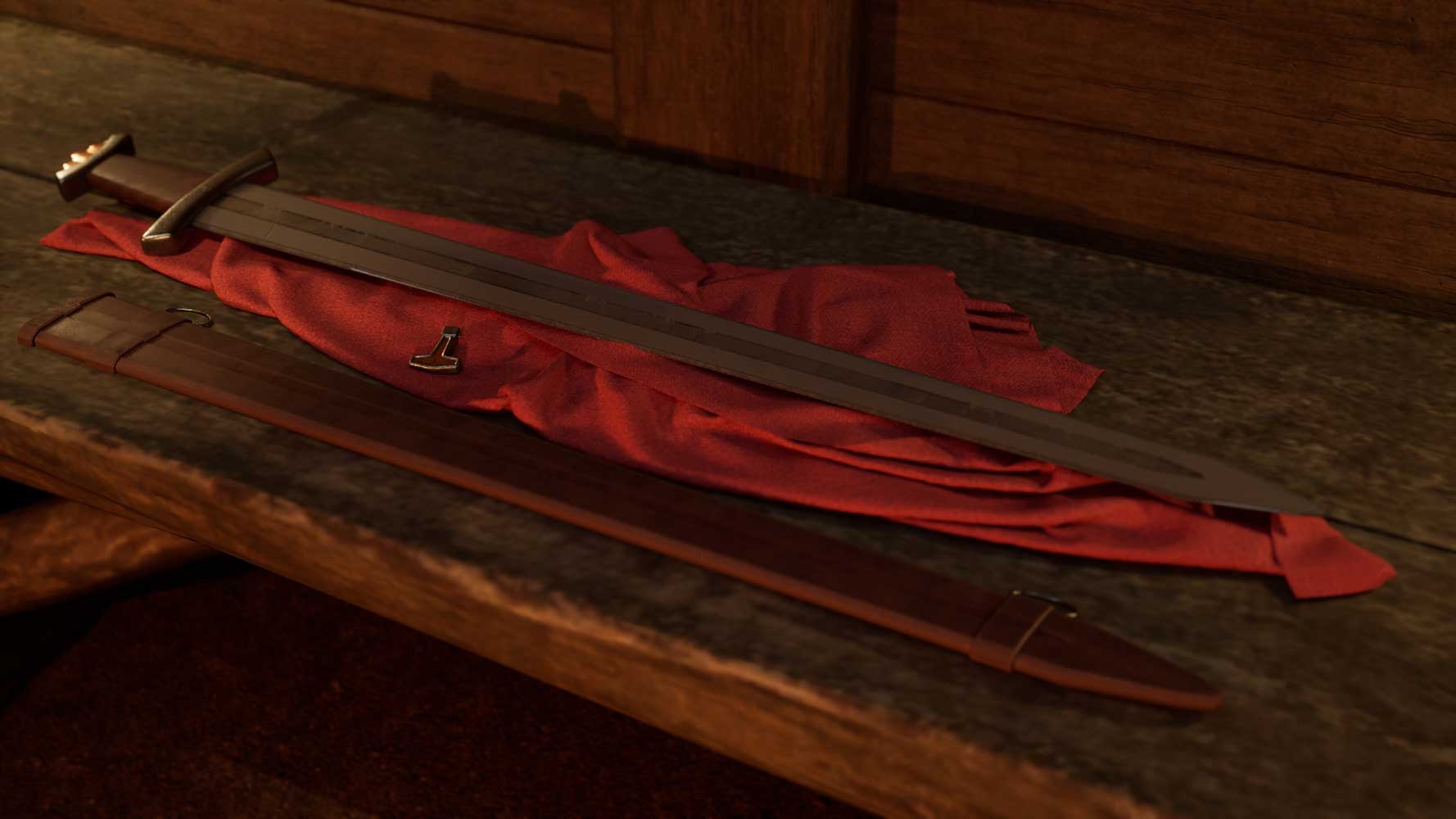
Fees and funding
Home
Tuition fees for the 2026/27 academic year
- Full time: £10,400
- Part time: £6,500 per year
The level of fee that you will be asked to pay depends on whether you’re classed as a UK
(home) or international student. Check your fee status.
Fees for subsequent years
The rules for inflation on fees in subsequent years depend on the type of fee status and level
For Home and overseas postgraduate degree students starting in 2025, fees will remain the same for each year of your course.
Funding your study
Depending on your circumstances, you may qualify for a bursary, scholarship or loan to help fund your study and enhance your learning experience. Find out more about scholarships and funding.
International
Tuition fees for the 2026/27 academic year
- Full time: £18,860
The level of fee that you will be asked to pay depends on whether you’re classed as a UK
(home) or international student. Check your fee status.
Fees for subsequent years
The rules for inflation on fees in subsequent years depend on the type of fee status and level
For home and overseas postgraduate degree students starting in 2026, fees will remain the same for each year of your course.
Funding your study
We offer a range of scholarships and bursaries for international students. To find out more and see if you’re eligible, please visit the scholarships for international students page.
Additional costs
Your course fees cover the cost of studies, and include loads of benefits, such as the use of our library, support from our expert employability team, access to workshops and free use of the IT equipment across our campuses. There are also other costs which you may need to consider.
How to apply
Home
Applications to our postgraduate courses should be made directly to Norwich University of the Arts using a Postgraduate Application Form.
Applications should be returned to admissions@norwichuni.ac.uk
Please see our Terms and Conditions and Admissions Policies for further details.
International
Postgraduate applicants can only apply directly by completing the below online application form or emailing the downloadable form to ioadmissions@norwichuni.ac.uk
International students requiring a visa should apply as soon as possible in the year they wish to start. Email our International Team for more information. Please see our Terms and Conditions and Admissions Policies for further details
-
Dean Read
Games MA
Henry Gorick
Games MA
James Ward
Communication Design MA
Joe Neeves
Games MA
Nathalie Hammond
Games MA
Sam Betlem
Games MA
Steven Turney
Games MA
Ben Rhodes
Games MA
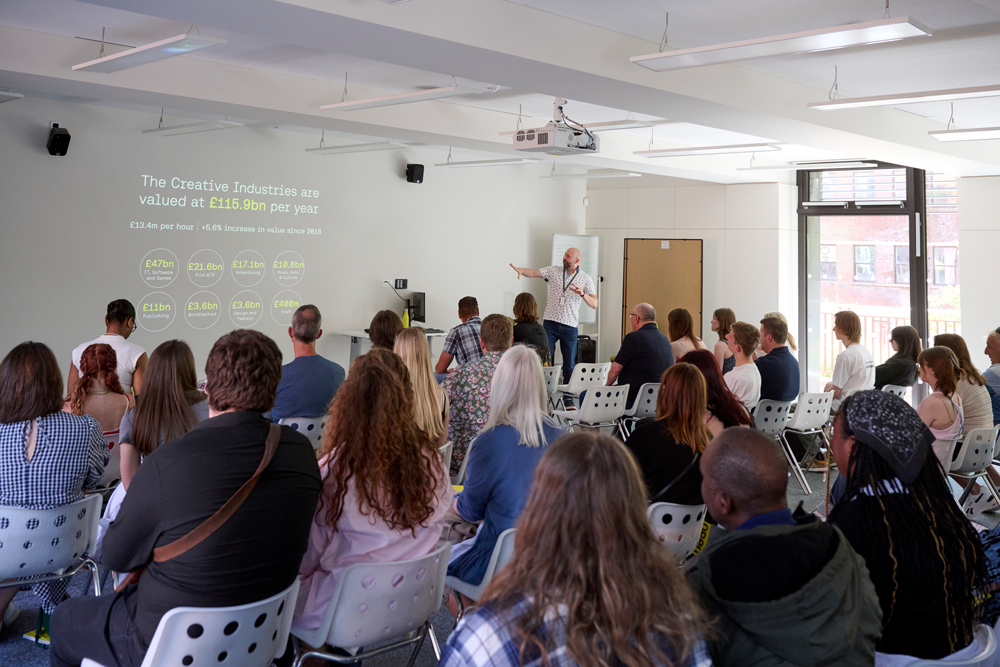
Latest news
-
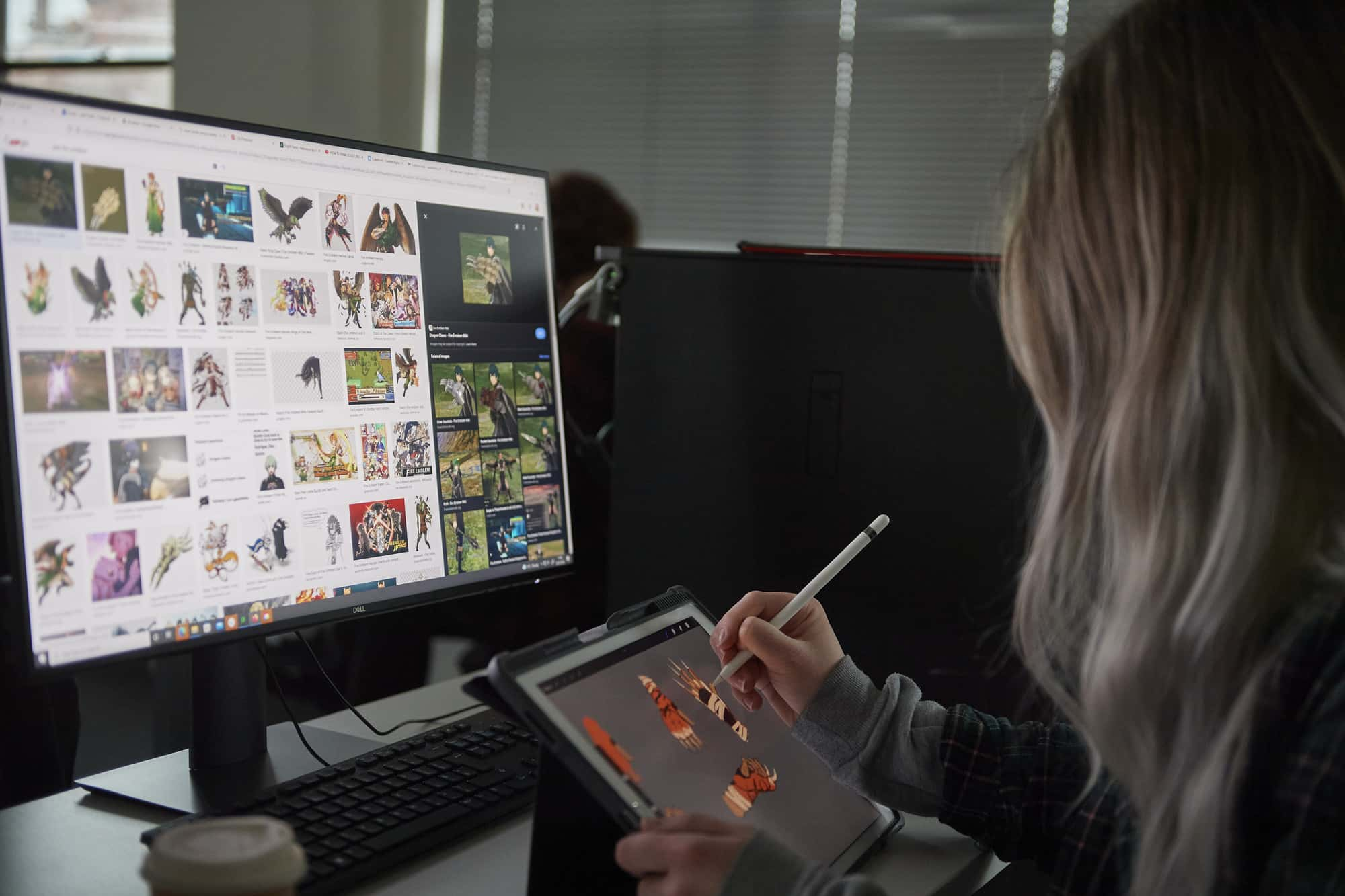 BA Games Art and Design •
BA Games Art and Design •East of England set to become UK’s next Games Cluster, says landmark report
A major new report is calling for the creation of a Games Cluster for the East of England — positioning the region as a national leader in creative technology and immersive media. -
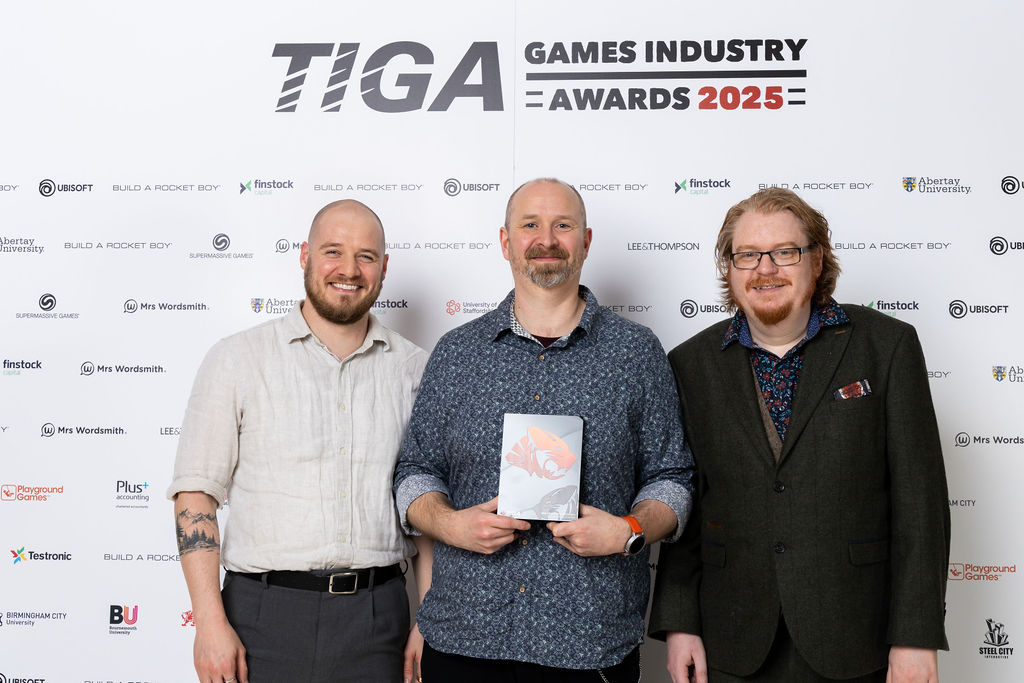 BA Games Art and Design •
BA Games Art and Design •Norwich awarded Best Education Initiative at the TIGA UK Games Industry Awards
TIGA, who represent the UK video games industry, have recognised the University’s commitment to graduate success and industry-focused learning in their 2025 awards. -
 BA Animation •
BA Animation •Cutting edge Sony Virtual Production Studio puts Norwich on the map for the future of film and gaming
Norwich University of the Arts and Sony open new landmark facility for students, creators and the community. -
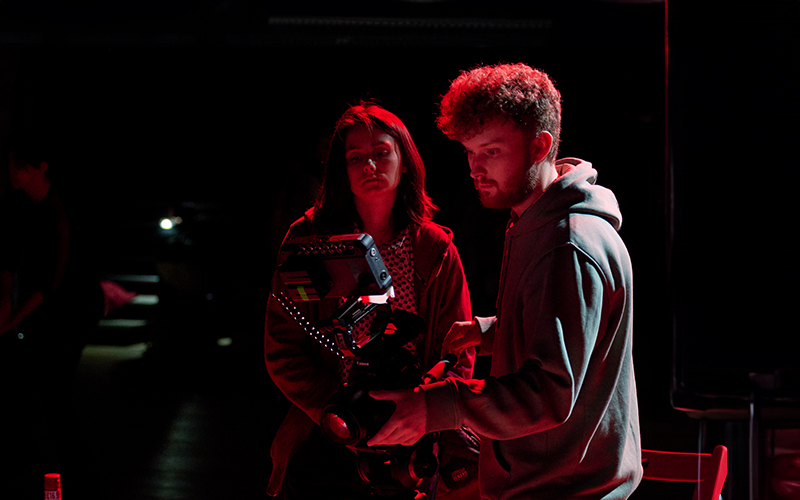 MA Communication Design •
MA Communication Design •What's the difference between undergraduate and postgraduate study?
We explore how postgraduate study could unlock your creative potential and future prospects. -
 BA Games Art and Design •
BA Games Art and Design •Alumni Spotlight: Ryan Ringer-Duffy
Ryan talks to us about studying Games at Norwich and his role as an Augmented Reality specialist. -
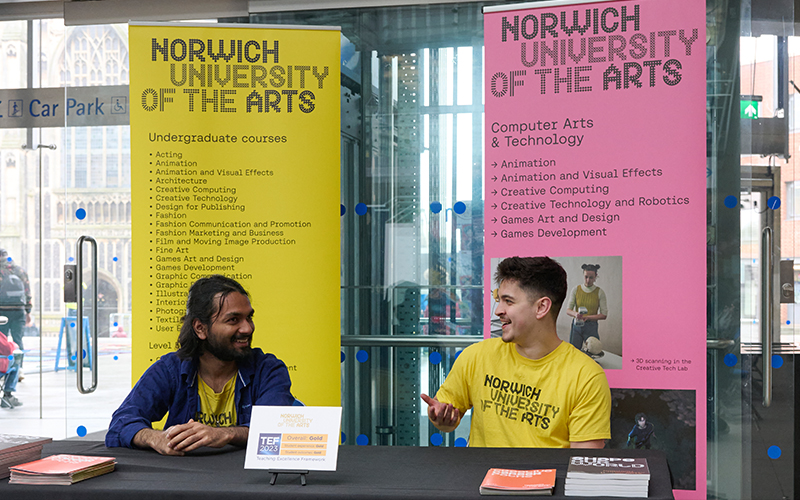 BA Games Art and Design •
BA Games Art and Design •Norwich University of the Arts sponsors Norwich Games Festival
The festival is a unique opportunity to celebrate Norwich's thriving games industry.
Related courses
Discover our courses and take the first step towards unleashing your potential
-
Visit the Games Art and Design BA (Hons) course page
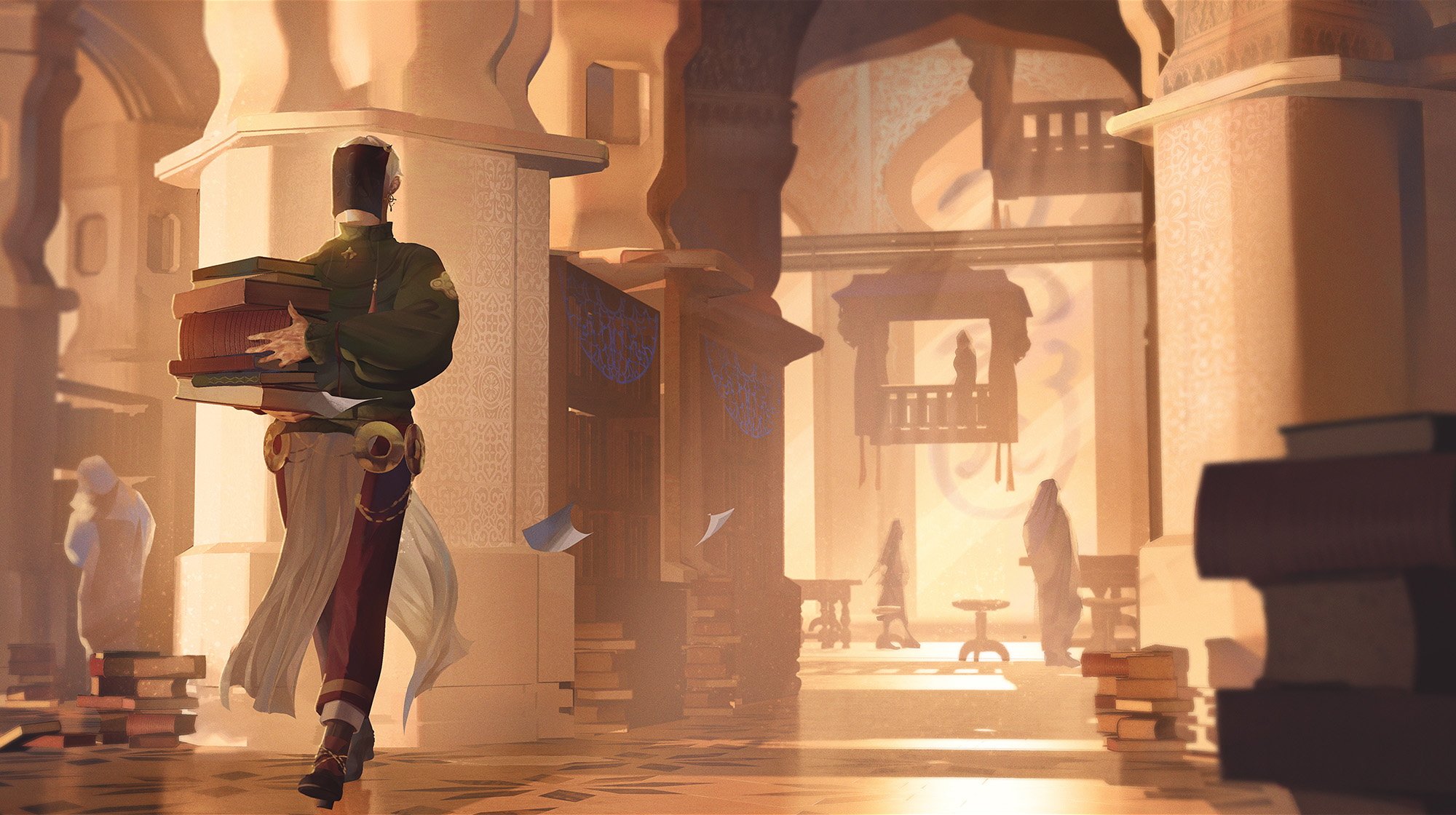
- Filter courses by study level: Undergraduate
- Filter courses by duration: Full time
- Filter courses by start month: September
- Filter courses by subject: Games Art and Design
Games Art and Design BA (Hons)
Explore and develop your skills of current game studio pipelines and be part of a collaborative, supportive department.
-
